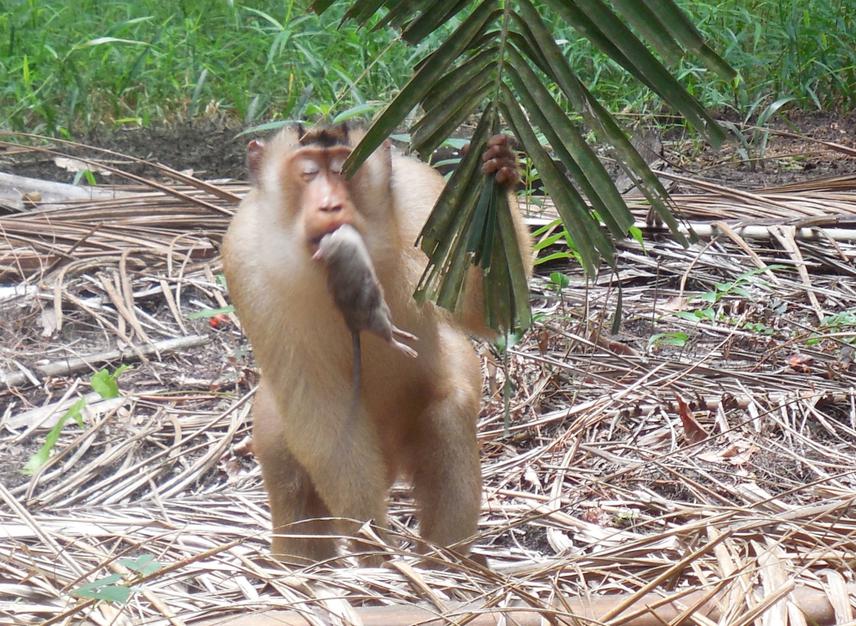Articles featuring the project.
Science Health News - Monkey learns to live in oil palm plantations but forest is still essential
ScieneNews - Malaysia’s pig-tail macaques eat rats, head first
Spatial and Temporal Use of Oil Palm Plantations by Wild Macaca nemestrina and its Implication for Mitigating Human-Wildlife Conflicts
Wildlife on the Edge: Effects of Oil Palm Agriculture on Health of Forest-Dependent Primates in Malaysia
Macaca nemestrina actively hunt for rats which are considered the major pest in oil palm. Through assessment of rat abundance and the feeding behaviour of macaques I will assess the possible role of M. nemestrina as biological pest control in oil palm.

Macaca nemestrina is considered a pest in agricultural crops, including oil palm. However, during a one year study we found that although they do feed on oil palm fruits, their impact on the harvest is rather negligible. Additionally, they actively hunt for rats, which are considered the major pest in oil palm. A preliminary assessment of rat abundances at the plantations revealed that Rattus argentiventer and R. rattus were highly diminished within the macaques’ home range, whereas abundance was high outside their home range. Thus, macaques may act as biological pest control in oil palm plantations fringing their forest habitat.
By shifting the common perception of Macaca nemestrina as pest to biological pest control, we will not only work toward the conservation of this species in the wild but also give oil palm growers an additional tool in biological pest management, adding a diurnal predator to two existing nocturnal rat predators, barn owls and leopard cats. By allowing macaques to naturally forage in their plantations, the monetary and environmental costs of applying poisons would be significantly reduced.
In this project I will assess the impact of macaques on rat population abundance by conducting an extensive mark and recapture study of plantation rats within and outside the Pigtail home range, conduct targeted focal animal observations to assess the rat feeding behaviour of the macaques and reach out to national oil palm growers through workshops and awareness campaigns on biological pest control for oil palm companies and small holders and the community.
Articles featuring the project.
Science Health News - Monkey learns to live in oil palm plantations but forest is still essential
ScieneNews - Malaysia’s pig-tail macaques eat rats, head first